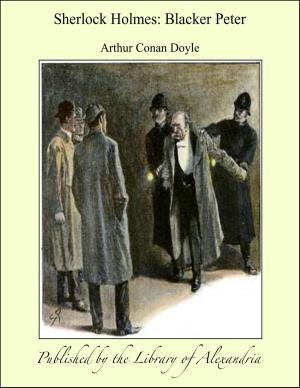The Flight of Georgiana: A Story of Love and Peril in England in 1746
Nonfiction, Religion & Spirituality, New Age, History, Fiction & Literature| Author: | Robert Neilson Stephens | ISBN: | 9781465618276 |
| Publisher: | Library of Alexandria | Publication: | March 8, 2015 |
| Imprint: | Language: | English |
| Author: | Robert Neilson Stephens |
| ISBN: | 9781465618276 |
| Publisher: | Library of Alexandria |
| Publication: | March 8, 2015 |
| Imprint: | |
| Language: | English |
A little before noon one gray day in September, 1746, a well-made young fellow, in appearance and fact a gentleman’s servant, rode up the High Street of a town in the North of England, and through the passageway of an inn to the yard. Having entrusted his sorrel nag to an ostler, he hastened to the kitchen, and proceeded to give orders to the landlady with an absence of deference which plainly showed that he spoke not for himself but for his master. There are still a few English inns not unlike those of that time. This particular house was of dull red brick, its main part extending along the street and pierced in the middle by the passageway which led back to the yard. In the front, the ground floor had four wide windows, and these were matched by four above, while a fifth was over the passage entrance. The small panes and stone facings of the windows gave the inn that look of comfort so characteristic of eighteenth-century houses, and this was increased by the small dormer casements in the sloping roof. The passage itself, paved with stones worn comparatively smooth, was capacious enough to admit a stage-coach or a carrier’s covered wagon. As you entered it, you saw the yard beyond, which was bounded by a wing of the main building and by stables, sheds, and sundry out-houses. Half-way through this passage, you found at your left hand a door, which opened to a public parlour, wherein meals were served at a common table to stage-coach passengers and other outside guests. At the right-hand side of the passage was a wider doorway, giving access to a small entry, from which you might step forward into the kitchen, or rightward into the bar, or leftward to a narrow stairway that wound steeply to the floor above. The kitchen was not the least attractive of these destinations,—with the ample fire in its spacious chimney-place, the shine of the pots and pans on its wall, the blackened beams across its low ceiling, its table devoted to culinary business, its greater table devoted to gastronomic business—for all guests of low station, including the servants of those of higher station, ate in the kitchen,—and the oaken settles and joint-stools so tempting to the tired, hungry, and thirsty traveller who might appear in the doorway. “And lookye, ma’am, you’ll oblige by making haste,” said the gentleman’s servant, having communicated his orders, “for master is following so close he may be here in a quarter of an hour. I’ll eat my bite while he’s on the way; for he’ll be having me wait on him at table, and as soon as he’s finished his dinner we shall be off again,—there’s eight bad miles between here and home.” He went to that end of the long table whereon certain cold viands stood exposed, while the landlady set the cook and scullery-maid upon preparations for the meal that had been ordered. She then called a chambermaid and bade her get the Rose—the best room in the house—ready for the meal to be served in. By this time the gentleman’s servant had helped himself to a good slice from the round of cold beef, and a plentiful supply of bread, had obtained a pot of beer from the tapster, and was seated in great comfort at the table. The landlady, a fat and tyrannical-looking creature, turned to him. “When your master stopped here t’other day, on his way to the South,” said she, “he had nobody with him but you. But now that he’s coming home, he orders dinner for two in a private room, and for one in the kitchen besides yourself. How comes that?”
A little before noon one gray day in September, 1746, a well-made young fellow, in appearance and fact a gentleman’s servant, rode up the High Street of a town in the North of England, and through the passageway of an inn to the yard. Having entrusted his sorrel nag to an ostler, he hastened to the kitchen, and proceeded to give orders to the landlady with an absence of deference which plainly showed that he spoke not for himself but for his master. There are still a few English inns not unlike those of that time. This particular house was of dull red brick, its main part extending along the street and pierced in the middle by the passageway which led back to the yard. In the front, the ground floor had four wide windows, and these were matched by four above, while a fifth was over the passage entrance. The small panes and stone facings of the windows gave the inn that look of comfort so characteristic of eighteenth-century houses, and this was increased by the small dormer casements in the sloping roof. The passage itself, paved with stones worn comparatively smooth, was capacious enough to admit a stage-coach or a carrier’s covered wagon. As you entered it, you saw the yard beyond, which was bounded by a wing of the main building and by stables, sheds, and sundry out-houses. Half-way through this passage, you found at your left hand a door, which opened to a public parlour, wherein meals were served at a common table to stage-coach passengers and other outside guests. At the right-hand side of the passage was a wider doorway, giving access to a small entry, from which you might step forward into the kitchen, or rightward into the bar, or leftward to a narrow stairway that wound steeply to the floor above. The kitchen was not the least attractive of these destinations,—with the ample fire in its spacious chimney-place, the shine of the pots and pans on its wall, the blackened beams across its low ceiling, its table devoted to culinary business, its greater table devoted to gastronomic business—for all guests of low station, including the servants of those of higher station, ate in the kitchen,—and the oaken settles and joint-stools so tempting to the tired, hungry, and thirsty traveller who might appear in the doorway. “And lookye, ma’am, you’ll oblige by making haste,” said the gentleman’s servant, having communicated his orders, “for master is following so close he may be here in a quarter of an hour. I’ll eat my bite while he’s on the way; for he’ll be having me wait on him at table, and as soon as he’s finished his dinner we shall be off again,—there’s eight bad miles between here and home.” He went to that end of the long table whereon certain cold viands stood exposed, while the landlady set the cook and scullery-maid upon preparations for the meal that had been ordered. She then called a chambermaid and bade her get the Rose—the best room in the house—ready for the meal to be served in. By this time the gentleman’s servant had helped himself to a good slice from the round of cold beef, and a plentiful supply of bread, had obtained a pot of beer from the tapster, and was seated in great comfort at the table. The landlady, a fat and tyrannical-looking creature, turned to him. “When your master stopped here t’other day, on his way to the South,” said she, “he had nobody with him but you. But now that he’s coming home, he orders dinner for two in a private room, and for one in the kitchen besides yourself. How comes that?”















